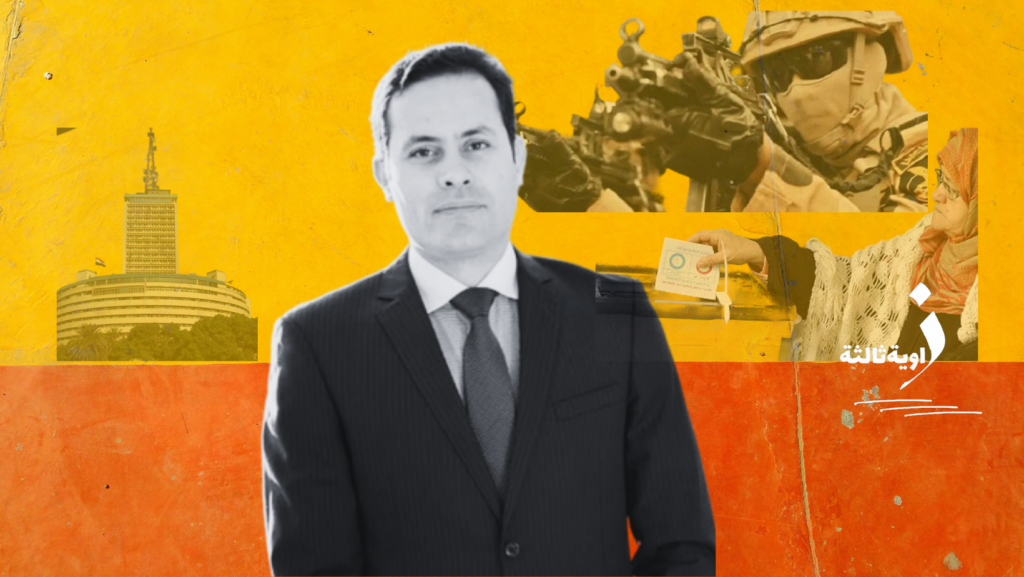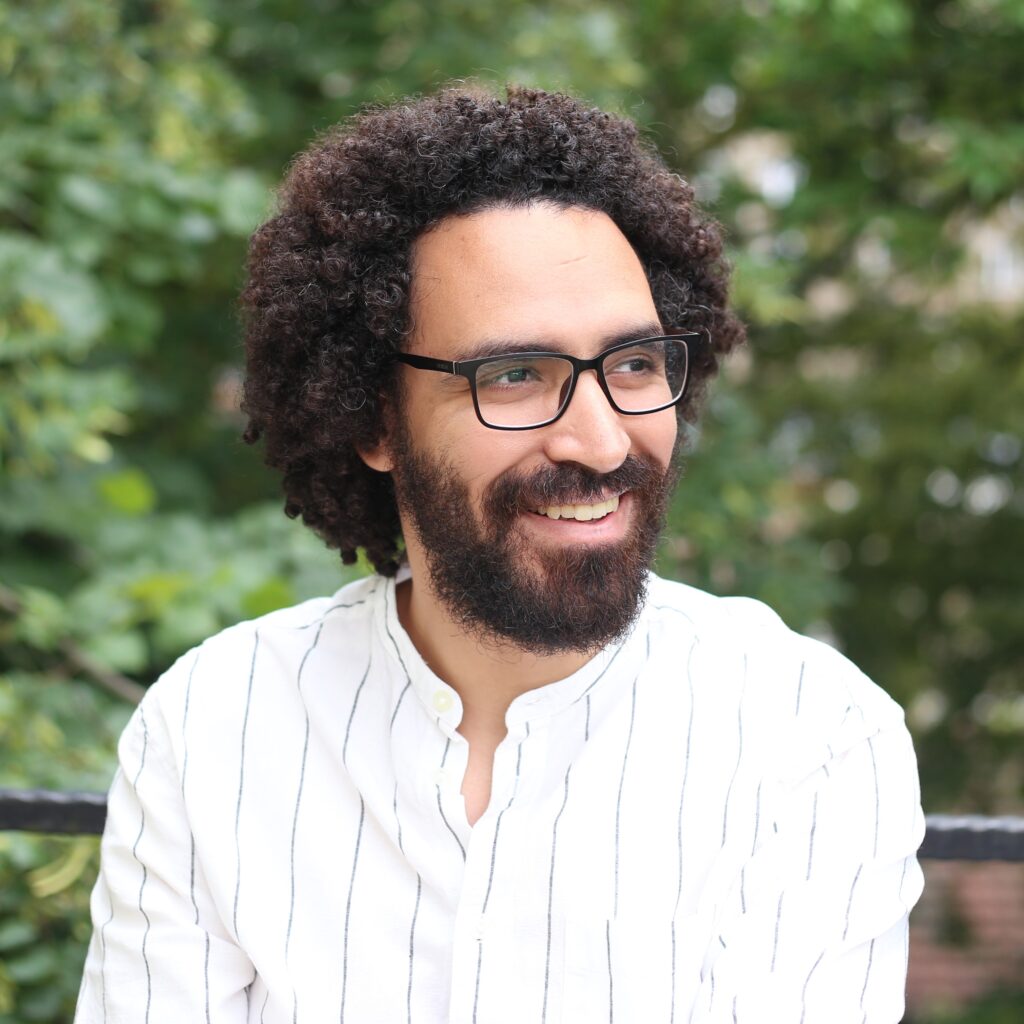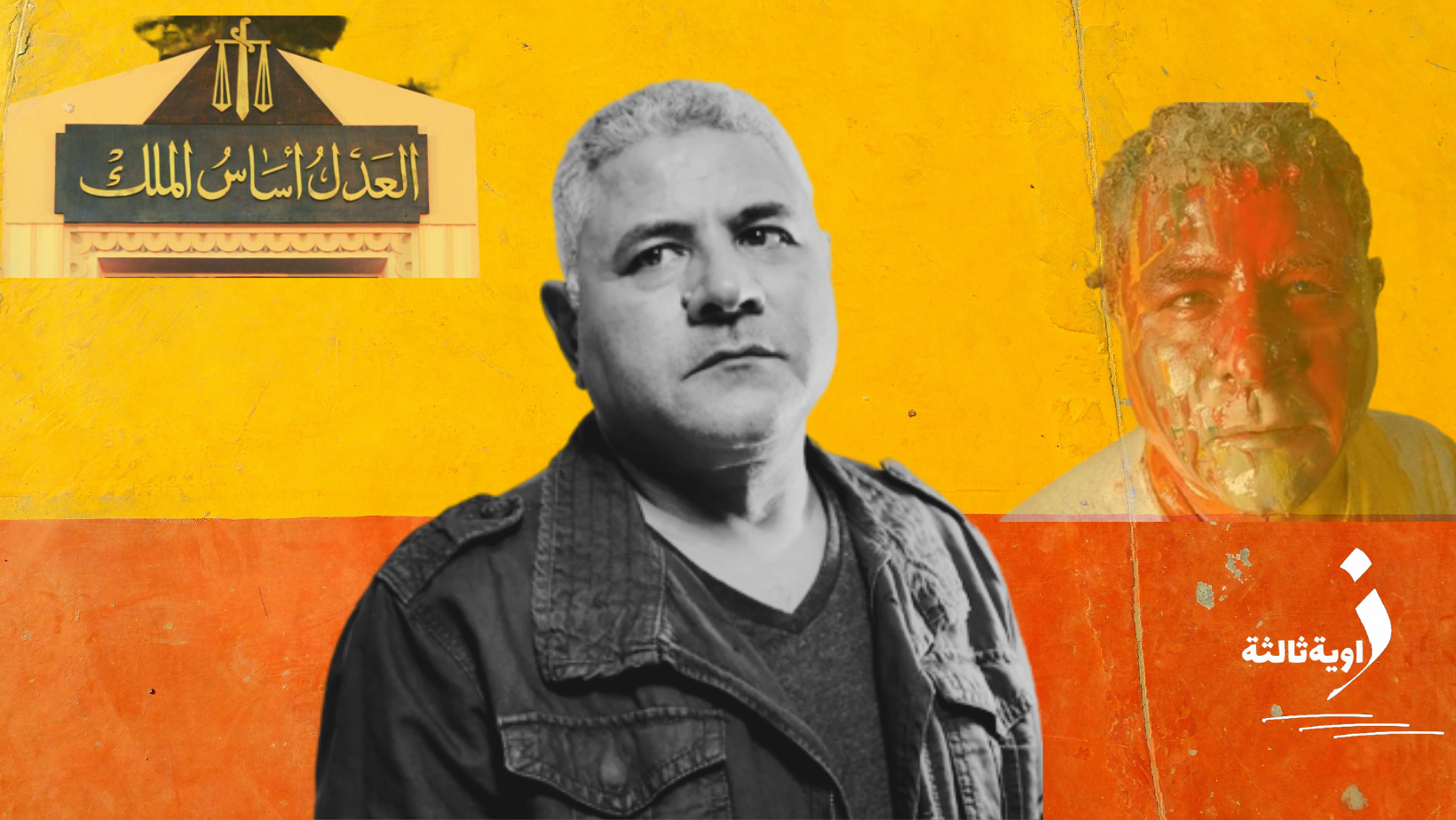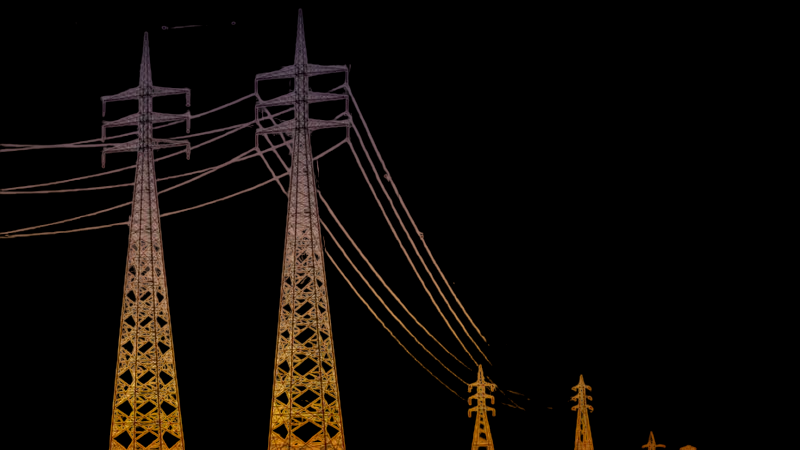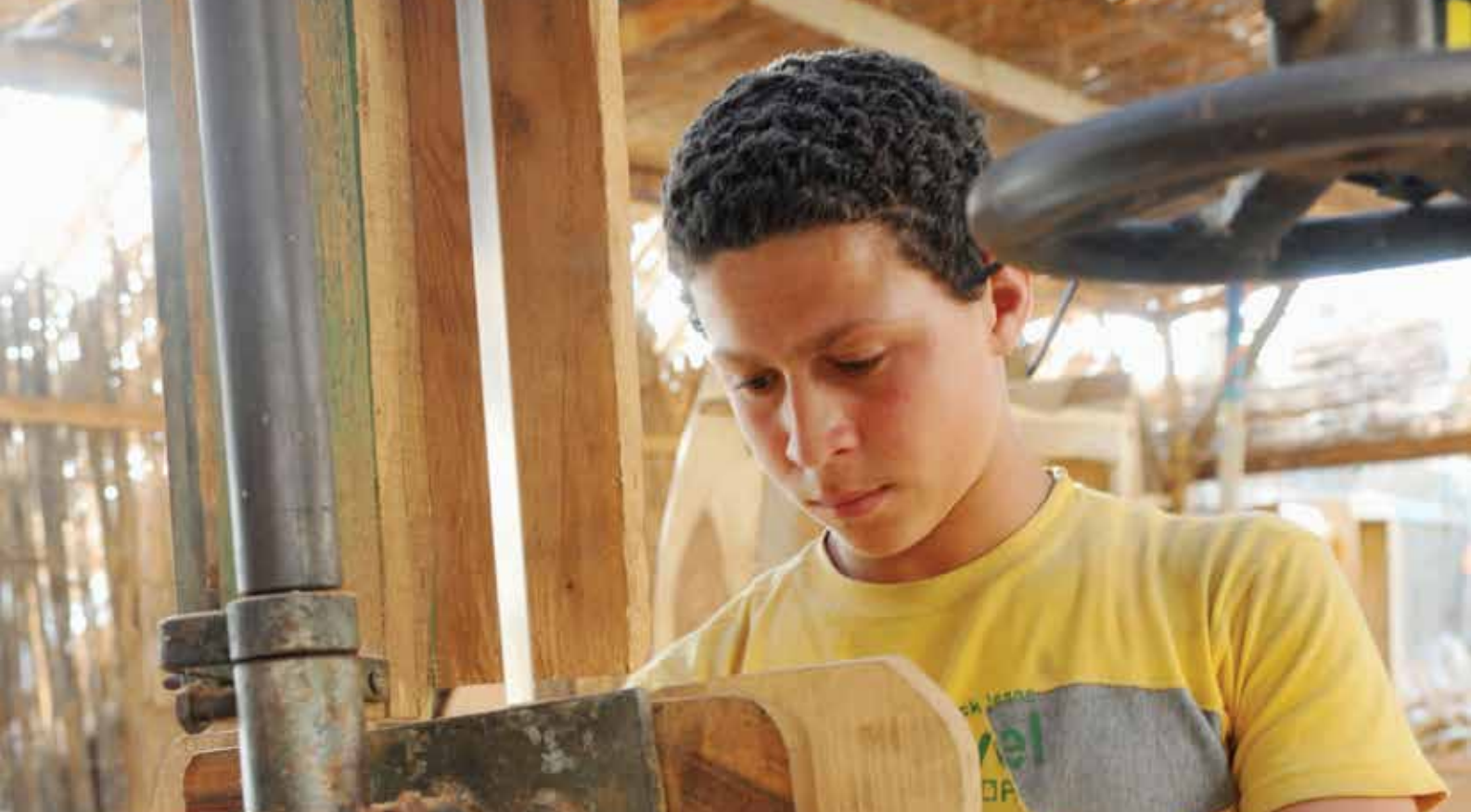Ahmed Gamal Ziada ■ The authority is not interested in elections in the true sense; it depends on the will of the majority if they decide to participate.
■ When people unite against violations, the authority cannot confront them. When seeking constitutional change, the authority must comply.
■ Control over institutions reflects the imposition of a fragile stability through repression.
■ My first foreign visit as president, if I become one, will be to Saudi Arabia.
■ Sisi does not represent the army; he was an officer in the armed forces and attained the title of President of the Supreme Council of the Armed Forces as the President of the Republic, a position any president holds.
■ Ethiopia has completed its plan for the last dam, called “Kordofan Dam” due to the deteriorating current authority’s speech. The president cannot define the Blue Nile accurately.
■ I won’t mention names of those who will assist me if I become president because some of them are already present in the current authority.
“Surely, the authority is not interested in fair and transparent elections. However, historical experiences prove that this is not an inevitable matter for every election held under an authoritarian regime. There are peoples less historically or culturally significant than Egyptians, without exaggeration or superiority, who were able to do this. So why can’t Egyptians do it now? It depends on the will of the majority if they decide to participate; they can surely turn the farce into a serious possibility, then bring about the desired change”… This is how “Ahmed Tantawi,” the potential presidential candidate, began his dialogue with “Zawia3” after we asked him if there is a possibility of serious and competitive elections. Tantawi believes that the current authority does not desire democracy, and the deep-rooted institutions as well. However, he believes that the people, “if they decide to change, no force can stand in their way.”
Onto the interview…
Could the will of the majority in genuine elections change the scene, even in the face of the authorities’ control over Egyptian life?
“Control” is a precise word because it reflects the imposition of a fragile stability through repression. Control, in any case, is a mechanism that may succeed in the face of people’s despair or fear. But if a large percentage of the people decide to break the barrier of fear and resist despair, control will immediately dissipate.
A simple example: the authority shifted in the real estate sector from being a regulator to a competitor. When it failed in competition, it turned into a monopolist. And when it became a monopolist, it couldn’t sell what it was building; so, it decided to prohibit construction. The Egyptian citizen who has a legal building permit is now banned from building. And if a citizen decides to renovate an apartment without approval, they will be tried in a military court. In recent days, everyone returned to building, whether they have a permit or not, without regard to the authorities’ reactions. In this case, the authority had no choice but to use the rhetoric of “you are the light of my eyes” rather than “we spread in 6 hours” to appease the people before the elections. We find that when people commit violations together, the authority cannot confront them. This means that the relationship is based on power, not law. People see that when the authority gives itself the right to violate the law, we, too, will do the same. So, I noticed that people have returned to selling on the streets of Cairo, although this is prohibited because they have returned together. What I want to say is that people are capable of breaking the law if they unite; let’s save our country from an unknown fate and encourage each other within the framework of the constitution and the law, in a completely peaceful manner. This message is important and must reach the people. What prevents it from reaching them is the climate of media lockdown under the security crackdown, and also that this message is not said by many parties in the midst of the cavalier attitude that this authority will not depart except through a revolution or a coup. This is countered by experiences that prove it’s not true, and many other nations succeeded in the democratic transition, and we are no less than them.
Do you not fear confrontation with the army, given that the current president is affiliated with it? And why did you mention that you would choose a military deputy?
I do not believe that the army holds animosity towards me because what I have expressed throughout my political journey is that the army, when we weigh it in the balance of Egyptian nationalism, is the eldest son of Egyptian nationalism. If we weigh it in the balance of equality, it is the people’s sovereign. It is the dearest possession of the Egyptian people and one of the most important institutions of the Egyptian state. Preserving it means preserving the unity and cohesion of the Egyptian state.
The idea here is that what reduces the position of the army from a level above political conflicts to a subject of political disputes is to have a party to interact with, provoke, or seek refuge in. Sisi was an officer in the Egyptian armed forces; now he is the head of the Supreme Council of the Armed Forces as the President of the Republic, a position any president holds regardless of their previous background.
Our choice of a deputy with a military background reflects our true appreciation for this institution and sends a clear message to it: we never hold the army responsible for political leadership, even if it comes from a military background.
I was among those who had a stance on Tiran and Sanafir and their fate.
If you become president, what will you do about Tiran and Sanafir?
Unfortunately, the relinquishment of Tiran and Sanafir is based on an international agreement passed under incorrect procedures, and Parliament should not have approved it in light of a judicial ruling confirming their Egyptian ownership. However, this is not a matter concerning the other party (Saudi Arabia); this is the fault of the Egyptian authority, and it should be held accountable.
Regarding my relationship with Saudi Arabia, it will be very good if I become president. I am keen on having exceptional relations with our Arab neighbors, particularly our brothers in the Gulf for understandable reasons.
What is your plan regarding the Grand Ethiopian Renaissance Dam?
Currently, there is the Grand Ethiopian Renaissance Dam, and there is another dam called the “Kordofan Dam,” which is larger than the Grand Ethiopian Renaissance Dam. Its designs have already been completed. The Kordofan Dam will be part of a series of dams with a storage capacity of up to 220 billion cubic meters, requiring a storage of 300 billion cubic meters after accounting for lost water due to evaporation and leakage.
This is happening because the current authority has committed a crime against our future. Ethiopia’s assault on our right to water is an assault on valid international agreements between us and them. There is no justification that allows Ethiopia to commit such an assault except for the agreement signed in March 2015, which I consider a personal agreement because it was not ratified by Parliament. Therefore, I cannot treat it as a binding agreement for the Egyptian state, and it imposes provisions on the Egyptian state.
What we are saying here is that the Nile River is the lifeline and the basis of the existence of the Egyptian state. We cannot deal with it in this contemptuous manner shown by the current authority, which has a multitude of problems. To them, the president cannot accurately define the Blue Nile and speaks about it as if it is a transboundary river, not distinguishing between an international river and a transboundary river. From my understanding of this issue as a specialized researcher in this file and as a believer in national causes, I will do everything in the state’s institutions to rally all the resources of power in the Egyptian state to defend its rights in the Nile water. These resources of power are multiple and have been neglected by the Egyptian state over the past 10 years, starting with taking refuge in the people and popular will.
What practical step will you take aside from taking refuge in the people?
Anyone who suppresses the voice of the Egyptian people and denies them their rights is someone who participates in building such a dam. When I was the president of the Dignity Party, I reestablished the Popular Front to preserve the Nile waters. After that, I invited a group of parties and public figures to a conference to express our position on the Renaissance Dam. We were besieged, both in terms of security and media, and held a small meeting under this siege. The voice of the Egyptian people was deprived of reaching the world. We emphasized that the Nile water is the basis of our existence and that we are a people living under the poverty line of water, with Egypt being close to the 500 cubic meters per person, nearing the 1,000 cubic meters per person, which is considered the poverty line in Egypt. This deprivation of the Nile water is considered a genocide, and it also violates valid international agreements. The Ethiopian side has signed these agreements while we were colonized in the border area with Sudan. Unfortunately, the Egyptian negotiator surpassed the people’s will. When the Egyptian side went to the US, they signed an inciting speech and agreed to a filling schedule. Sudan requested a grace period, and Ethiopia said they have a parliament and must refer back to it before responding to us, but they did not respond. At that time, Trump said the Ethiopians left nothing for Egypt but blowing up the dam, and they will do that. This meant that the American mediator saw the extent of Ethiopia’s obstinacy.
What was proposed by the Egyptian side would have been a disaster if accepted by Ethiopia. Our maximum aspiration was to have a legally binding agreement. If Ethiopia had agreed, it would have been a disaster because it meant they had a good law they could rely on to relinquish our legal rights. When I tell you to invoke public opinion and respect it and act based on national interests, unity, and popular will, only an elected authority can do this. One of the major achievements that can result from the democratic transition in the upcoming elections is the departure of this authority, allowing the presence of an authority that respects the constitution and the law and presents the Ethiopian dam agreement to Parliament for rejection. Then we can start a serious new path. We will present two options to the Ethiopian side: the first is cooperative if Ethiopia accepts respecting our rights. The second choice will be in case of obstinacy.
What do you mean by the second choice in a state of stubbornness?
There is a lot to be said at this point. Among the pillars of the Ethiopian economy are the export of meat and coffee; Egypt imports them from them, and this is a matter that requires a lengthy explanation because it was the subject of my master’s thesis. I have a master’s degree in Egyptian-African relations, specializing in Egyptian-Ugandan relations and the maritime dimension in Egypt’s relations with the Nile Basin countries. The title of the thesis is Egyptian-Ugandan relations since 1986.
When Egypt imports meat from Australia and coffee from Brazil and does not import them from Ethiopia.
The treaty governing the operation of the Suez Canal and the nature of the relationship within the Red Sea, including the legitimate use of force if necessary according to international law. The same American mediator stated that Egypt might blow up the dam. Of course, these options become narrower as time passes, and what was available before the first filling is no longer available. The authority gains more time at the expense of sacrificing the future.
What if there is international pressure to intervene forcefully because it may threaten the stability of the region?
International relations are based on power dynamics. Here, I am not saying that this is a specific option that we advocate for or prefer, but taking the option of military intervention off the table leaves you with nothing, and puts you on this futile path that makes the Ethiopian side waste time while you continue to plead with them with a feeble discourse. Even when the Egyptian side hinted at the use of force, it made a mistake because they sent a message implying that the armed forces are not capable of handling this matter if necessary. They knew this from repeated behavior, whether by repeating negotiations or conflicting statements.
If the current authority relied on a competent Egyptian negotiator who had the tools and support from the authority and allowed the Egyptian people to rally behind them, we would not have reached this stage. We must stand before the world to tell them that we are “Egypt,” even if we don’t say it literally. You must present yourself in this manner. But now our image is projected as if we are Egyptians with no voice, and Parliament has had its powers usurped and more, meaning that we could be subjected to pressure and extortion.
Are there names from the political middle that support you or have agreed to their presence in power if you succeed?
There is a distinction between forming the presidency institution from deputies and advisors; this is the prerogative of the president, and there is an advanced vision in this matter to reform the presidency institution constitutionally, legislatively, administratively, and financially, which will have a positive impact on the relationship of the presidential institution with the state authorities and the people. But what I want to point out is that we are sincere in a state of law and institutions. The president should propose the name of the prime minister and consult with him on 4 ministers, then this formation is presented to Parliament, which has the right to accept or reject it. Because the president should not be the person dealing with the government as if they are a group of assistants whose job is to agree with everything he says or decides.
I want to say that despite the distortions that have occurred in the constitution, the president still does not have the choice of a government or the dismissal of a minister except with the approval of Parliament according to the constitution.
Also, I must emphasize that the president does not have the right to choose heads of the supervisory authorities from himself except with the approval of Parliament, and the president bypasses this constitutional entitlement by issuing executive decrees, which is a circumvention of the constitutional intent. In addition, in the previous legislative session, when there was a desire to dismiss Counselor Hesham Genena, who is the head of an independent supervisory body, Parliament made an amendment to the way heads of supervisory bodies are dismissed, stating that they are to be dismissed by a single decision from the president. You can imagine that for the president to appoint someone, he must have the approval of Parliament, and when he dismisses him, he does so unilaterally because they forgot to amend the law of the Central Auditing Organization that conflicts with this, as the law states that the head of the Central Auditing Organization cannot be dismissed by a single decision from the president.
I cite these examples to say that whoever comes with the will of the people within a sound democratic process does not owe anything to anyone. Their bill is for the people, and we are serious about putting forward the best names and then respecting the constitution and the principle of the separation and balance of powers, which takes us for the first time from the state of an individual president to the idea we propose, which is to build a state of law and institutions.
But are there specific names?
Of course, there are specific names, but I cannot mention them for very objective reasons related to the relationship of these names with the current authority. If this authority continues after the elections. If I announce people from the best of Egyptians in knowledge and experience who can assist us in the program or discuss with us the future of Egypt, and then by bad luck, the current system remains with its current president, do you think if they were the best people, and the current regime remains as it is, will he choose them for any other positions? of course not.
I want to tell you that when we were in parliament and we wanted to pass very clear amendments with no dispute about them, we would go to the majority and give it to them so they could propose it, just because there was a directive that whatever comes from us, our front, must be rejected even if the amendments were justified and logical. This reflects the situation in general, not just inside parliament. The issue is not about the names in Egypt; our problem boils down to just two words: “political will.” Egypt doesn’t lack competencies or programs, but it has a problem with the decision-making process, economic decisions, cultural decisions, and more, being an individual decision that does not respect feasibility studies, experts, specialists, and competence. This was publicly evident. If you asked any expert in Egyptian-African relations, they would tell you that it was impossible to reach this point except under this type of administration.
What actions would you take as President in response to international human rights concerns?
If I were the President of a republic, you would not find strongly worded statements regarding human rights violations because there would be no violations, neither in prisons nor outside of prisons.
Where does this confidence come from, given the deep state control? Can the situation change overnight?!
Question: Can I become a President through a coup? Or can I become a President through forgery? The only way for me to become a President is to be chosen by the clear majority’s will, not only that the people elected me, but that they have also chosen to stick with me. If I came in this way, it clearly means that I derive my strength from the will of the majority of Egyptians. When I am determined to use this power to build a state of law and institutions, no individual in any institution will be able to face this, especially since I have the law, the constitution, and the will of the majority of Egyptians with me.
But what can be done immediately is that the people who commit some violations know that the President of the Republic does not accept these violations. Whoever does this will be held accountable without excuse and regret; the law is sufficient for this, and I will only enforce it.
I still insist on the question: If there are international condemnations of violations, what is your reaction? Will you reject them claiming independence since this is the thinking of Nasserists?
I will not invoke a false concept of national independence, because I am one of the advocates of true national independence. Certainly, a regime has done this in Tiran and Sanafir, even in its relation to the region and the world or in the conditions accepted by the International Monetary Fund. The independence does not mean that the authority violates fundamental values. Does the Egyptian Ministry of Foreign Affairs not issue statements when major events occur where there is a departure from constitutional legitimacy or when serious violations against citizens occur in another country? Does this imply an attack on sovereignty?
So, you believe that human rights are an international issue, not just an Egyptian matter?
I believe that the Egyptian constitution gives the international treaties signed by the Egyptian state the status of Egyptian law. Therefore, compliance with international agreements and treaties is required. This is what the constitution says; otherwise, the concept of international treaties would lose its meaning, especially since these treaties regulate fundamental rights of citizens. But let me say that the state should not wait for anyone to tell it to respect its people and not violate their rights.
What is your economic plan?
There are things that will take time to show their effects, but there are things that can be immediately resolved as a result of the democratic experience and its impact on files such as debt, investment, and grants.
The quick solutions… the experiences of countries that managed the democratic transition and most of them have a vision to hold a real economic conference, not like the Sharm El-Sheikh conference in 2015.
For example, in Zambia and the Egyptian plane incident, this is a country that succeeded in negotiating with creditors, resulting in rescheduling its debt over 30 years and reducing the interest rate to 1%. We can enter into negotiations, and there is a possibility to write off corrupt debts, reschedule some debts, and reduce the interest rate. There is also an investment in democratic transition. You present yourself to the world as helping yourself, and we want our friends and partners to help us, and some creditors can get partnerships instead of debt payment. We want to present ourselves to the world with a clear title: “Join us before lending us.” Egypt is a large country, which brings us to the investment part. The obstacles to investment in Egypt are very clear, including that people do not have confidence in their rights, and the first of these rights is the right to litigation. There are also amendments to legislation and the introduction of new legislation. Of course, I am talking about the investment law, bankruptcy law, and divestment law. There is also the clear boundary between the activities of bodies and authorities that have replaced the public sector and are owned by the armed forces or other authorities, and the established economic rules that ensure equal opportunities, competition, and prevention of monopolistic practices. When this is applied clearly, you will have an investment map that you present to the world for Egypt, with its 110 million people, its location, the nature of its workforce, and the agreements it has with neighboring countries and others. Egypt has an opportunity to launch an investment, but it achieves very poor and bad figures compared to its potential.
Is privatization part of the plan?
This must be weighed by the government, meaning that the decision must be an economically sound one. There are institutions that cannot be approached for sale, and there are institutions that can be restructured and their management privatized while the assets remain state-owned. There are other institutions that I am open to having partners or being sold to an investor or to the Egyptian public whenever possible, and if not, foreign investment is also acceptable.
In foreign or Arab investment, I prefer investors to come and establish a new entity. However, acquisition operations may give you dollars today but can cause a problem in the future because according to the Investment Law, at the end of each year, you are required to transfer their profits in dollars. This is the behavior of a authority that buys the present and sacrifices the future.
Are you really ready for the upcoming presidential elections we might witness in 3 months?
The authority is eager to rush the schedule, and in the expression used by Egyptians, they are kidnapping time. But if the elections are held under expected conditions, we can win these elections. Perhaps the authority will resort to even higher oppression to convey to people that there are no elections. But if I am assured of the authority’s commitment to the law and its commitment to fair competition, I would unequivocally say that our chances are the greatest to win the elections. However, if they decide to continue their oppression, these are not elections.
But they have started repression and continue it, especially after the arrest of 36 members of your presidential campaign.. isn’t that so?
The Egyptian people have the ability to confront this oppression and repression. They have arrested 36 from my campaign, and there are dozens detained whose fate we do not know, some disappear for a day or two and are released, and some are referred to the prosecution. In parallel with this announcement, the number of volunteers in my campaign increased by 3325 volunteers, bringing the total number to 18,334 volunteers. This is happening despite the oppression and media censorship. Support is increasing in the streets and on social media. People are still able to express themselves despite this level of oppression.
Do you think that only the audience of social media knows you since you are prohibited from appearing in the Egyptian media?
The ones who know the answer the most are the security apparatuses that try to create a barrier between me and the citizens. Wherever I walk or in any public place, I see Egyptian women, elderly from various social classes, applauding and praying for me. This is not strange. This woman probably has a son connected to social media and may share what is happening and tell her to pray for this man and wish him well because he resembles us, and maybe our situation will change.

